By Peter Akpatason
A proper deregulation of the downstream sector of the oil and gas industry in Nigeria is not undesirable, however, the anticipated benefits of opening up the sector for competition will be difficult to achieve if poorly or wrongly done.
Proper deregulation can only be achieved if the right environment for competition is created and supported with appropriate anti-graft laws that ensure compliance to rules of competition and extant laws.
The much talked about manipulations by a seemingly invisible cartel is capable of stifling any regime, be it regulated or deregulated. Therefore, prior to the commencement of deregulation, Government needs to confront the cartel, with a strong-will to prosecute culprits in order to restore public confidence and deter future recurrence.
The current change in petrol price from N65 to N141 is neither deregulation nor total subsidy removal for he following reasons:
(1) In a deregulated market, there is no price cap, such as N141 per litre. Therefore, the Department of Petroleum Resources, (DPR) will have no reason to seal petrol retail outlets that are selling above the official ceiling, as they are currently doing.
(2) If private investors refused to build refineries in Nigeria because of N65 price cap, they will equally not invest if the cap is shifted upwards to N141 per litter because, it may not satisfy their huge appetite for profit maximisation, often wrongly tagged ’price recovery’ by industry regulators.
Also, subsidy includes the money paid to transporters and marketers for bridging petroleum products to different parts of the country in furtherance of the even-price policy, through the Petroleum Equalisation Funds (PEF). The N5.00 provision, in the current PPPRA template in the N141 cap, amounts to transferring bridging subsidy to every petrol consumer nationwide.
If the essence of deregulation is to open up the petroleum sector for competition and to encourage private investors in the industry, as claimed by the Ministers of Petroleum and Finance, then we must embark on the process of creating the enabling environment devoid of manipulations, monopoly and cartels, such as Major or Independent Marketers or Importers Associations who pull resources together to jointly import same cargo of petroleum products and co-determine the quantity to send into the market and the price to offer. It should be noted that such a practice amounts to market manipulation and price distortion.
In the present circumstances, the best single instrument for creating the enabling conditions is the Petroleum Industry Bill. (PIB)
Put simply, PIB seeks to break the Nigerian National Petroleum Corporation (NNPC) monopoly, encourages more private companies to build and operate refineries for the purpose of profit making – that do not depend on government appropriations and free from political interferences.
The PIB will also allow for:
- An independent pipeline company is to manage the existing and possibly expand the network of pipelines, which will give equal access to all operators (public and private) for which equal fees for equal services will be charged.
- The upstream sector is to be policed by a transformed and independent DPR while an independent Petroleum Products Regulatory Agency (PPRA) will police the downstream sector for standards and policy compliance.
If there is strong commitment and will, this process should not take more than six months to complete. In the absence of the aforementioned conditions, removal of subsidy or price adjustment will not achieve the objective of checking the excess of the cartels, and neither will it engender competition that will eventually moderate prices. Rather the inflationary effect will continue to soar and task-force agencies that have served as mere conduit pipes will continue to increase in their number, while the draining of our national economy will continue unabated – even as full subsidy burden is shifted to the already impoverished citizens.
A major catastrophe awaits the current price discrimination practice, since the price gap between Petrol Motor Spirit (PMS) and Dual Purpose Kerosene (DPK) serves as an incentive for mindless traders to do adulteration by mixing kerosene (sold at N50) and petrol (sold at N141), then sell it as PMS. This practice is known to have caused explosions that resulted in huge fatalities in the past and is very likely to happen again. In the alternative, it will soon be used as an excuse for hiking the price of kerosene at par with petrol.
Considering the above arguments, it is clear that there is a need for the suspension of the unilateral price-like to enable stakeholders to re-examine all these factors. Also, set an agenda and a time frame for the implementation of pre and post deregulation measures that will mitigate possible effects, and ensure competition that guarantees the actualization of the anticipated gains of a true deregulation. As a result, the labour union and the executive arm should work with the truce suggested by the House of Representatives in order to restore order and make progress.
In the next episode, I will talk about measures to be adopted by civil society and other concerned Nigerians to monitor the transition to avoid manipulations and deviations that could undermine the process and erode the benefits.
Peter Ohio Akpatason, mni, mcips,
Hon. Member Federal House of Representatives,
Akoko Edo Federal constituency
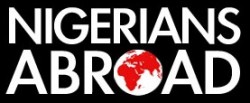


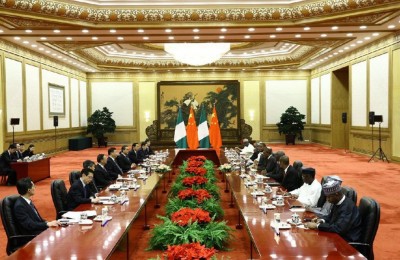
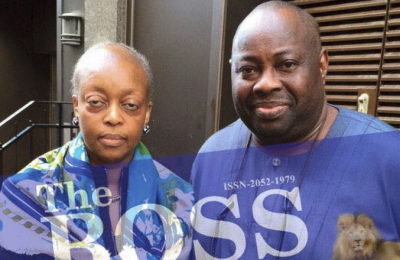
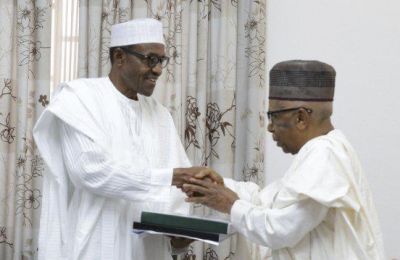



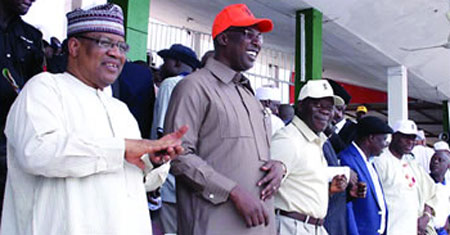





There are products that the government can put prize cap on. Fuel should be one of them, because of abuse and corrupt practices in Nigeria.
Thanks for this frank talk. It is a pity that rationalizations and platitude are finding space in a fairly straighforward discourse. The government placed the cart before the horse. Everything about the subsidy removal appears ad hoc; not thought through, at all. Nigerians have every reason to doubt any leader, includiing the president. The onus, then, is on the president to convince. The use of force or subtle coersion is overused and will only salt the sore. Jonathan, if you continue to be sticky you will soon know who is boss!! You are presiding over mamoth corruption that you are either papering over or supporting. Stop aggravating the anger of Nigerians by resorting to this used method!!!!!
Government should remove the fuel subsidy to make things easy for we nigeria No going back nigeria pray for our president
D president must be wary why Okonjo-Iweala, Lamido Sanusi, Aganga & d rest of them are insisting on fuel subsidy removal after failing to give quality advice to Mr. President. D present fire-fighting is unnecessary, & it is going to be a barren exercise like it was in d past.
The resignation of Dr. Levi Ajuonuma as chairman in NNPC (if true) is an indication of a crack in ur wall of governance. Your excellency have to do something pls, b4 d whole house crumbles on u. D can stops @ ur desk!
Removal of subsidy neither punishes nor curtails d cartel that rips off Nigeria thru d process. U would only succeed in transferring d feeding of their known greed to d hapless masses who gave u their votes believing u were one of them! D votes made it possible to employ them. This logic is simple enough for ur cabinet & economists to know.
All other OPEC countries export petroleum but they do not import its products for domestic consumption. They have d good sense to put functional refineries in place so they have no business subsidizing prices @ which consumers buy. (Recall d recent visit of a Venezuellan to Nigeria & his remark on d cost of our petrol).
Over 70% Nigerians subsist on less than $2 a day, very much below acceptable poverty level. How do u aggravate their woes by making them pay $0.93 for a litre of all-essential petrol? How I wish only d profiting cartel would be affected! U & them CANNOT even feel it!
The finger that offends, they say, the king orders to be cut. No. Not in Nigeria where d corrupt has become so powerful & untouchable. Otherwise d cartel that stole d illusory subsidy on fuel to d extent of bringing d nation to dis sorry pass should be apprehended first in order to buy d sympathy of d masses for govt discipline. To punish d masses with d offence committed by d rich few is a sacrilegious miscarriage of justice. D masses want to see justice done to d thieving cartel b4 u can talk them into compromise.
The 4 refineries were better resuscitated with d money being used to buy buses or introducing other palliatives, so dat in 6mths’ time, we shall no more import subsidized oil. To do otherwise is to sow d wind…. GEJ knows he cannot stem d misappropriation of whatever is made from subsidy removal. D hawks are on d wing!